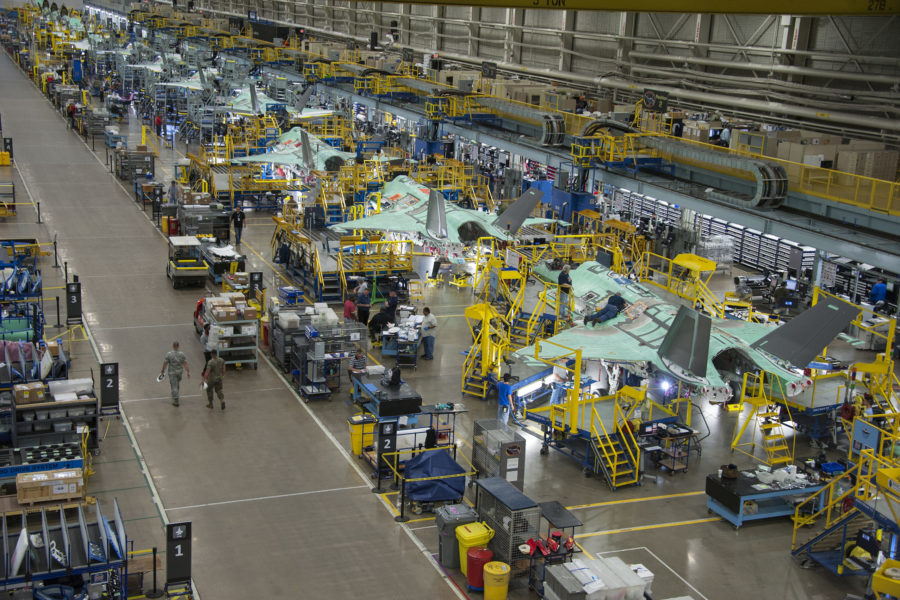Lockheed Martin said it is “developing mitigation plans” after the F-35 Joint Program Office announced Sept. 7 that it has stopped delivery of new fighters upon learning that a component relies on material from China.
The material in question is an alloy in a magnet in the F-35’s turbomachine. The turbomachine “integrates the functionality of an auxiliary power unit (APU) and an air cycle machine (ACM) into a single piece of equipment,” according to Lockheed Martin. “When the turbomachine acts as an APU (combusted mode), it provides electrical power for ground maintenance, main engine start, and emergency power. It also provides compressed air for the thermal management system during ground maintenance.”
Lockheed Martin said three F-35s are ready for delivery but on hold. Its spokesperson did not name the airplanes’ customers.
Sourcing the Chinese material is “potentially in non-compliance” with the U.S. Defense Federal Acquisition Regulations Supplement, according to a statement by the Defense Department’s F-35 Joint Program Office.
Honeywell, the turbomachine’s maker, notified Lockheed Martin that it had been “informed by their lube pump supplier for the turbomachine that one of their suppliers has been using alloy sourced from China in their magnets,” according to Lockheed Martin.
Lockheed Martin and the JPO said the magnet doesn’t transmit any information. It doesn’t “harm the integrity of the aircraft, and there are no performance, quality, safety, or security risks associated with this issue,” according to the JPO. The F-35s already in service will “continue as normal.”
The JPO said it “temporarily paused acceptance” of new F-35s after learning that the contractors had found a U.S. source to replace the Chinese alloy.
Lockheed Martin said it’s “doing everything possible to gather the facts” on the source of the material, and the JPO said “investigation is underway” into “causal factors … and to establish corrective action.”
The Defense Department’s use of Chinese materials for key technologies and acquisition programs has become an increasing source of concern and legislation in recent years. And in 2019, U.K. media outlets reported that a Chinese-owned company was making circuit boards for the F-35.
